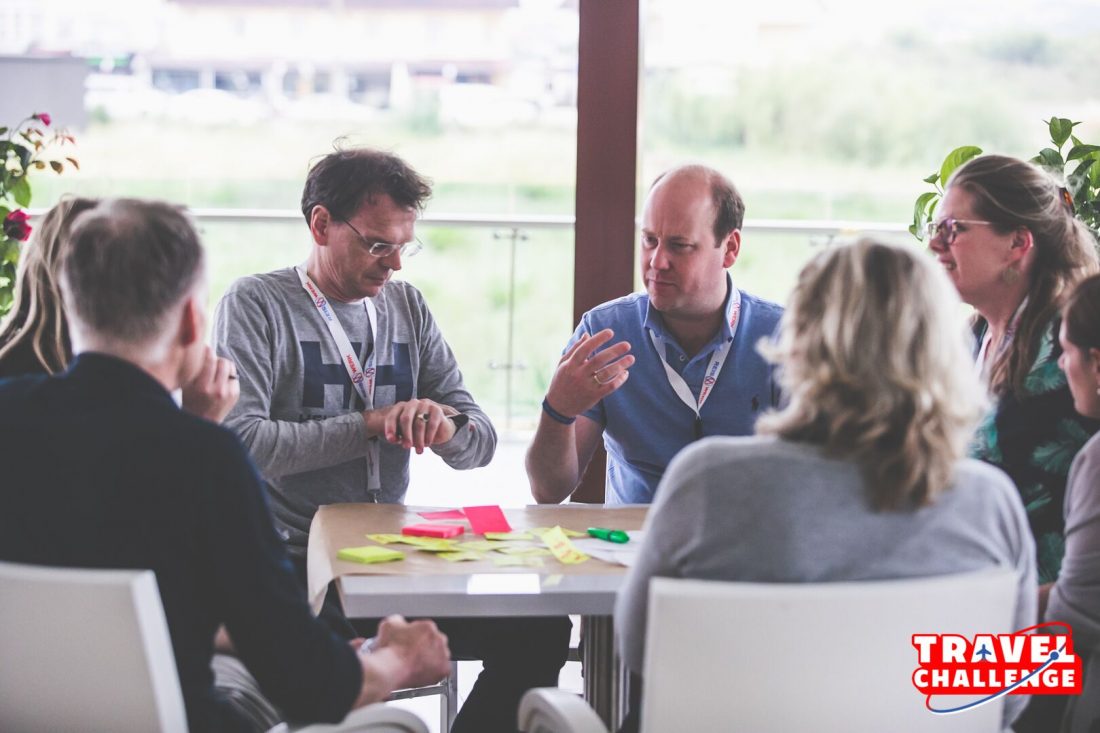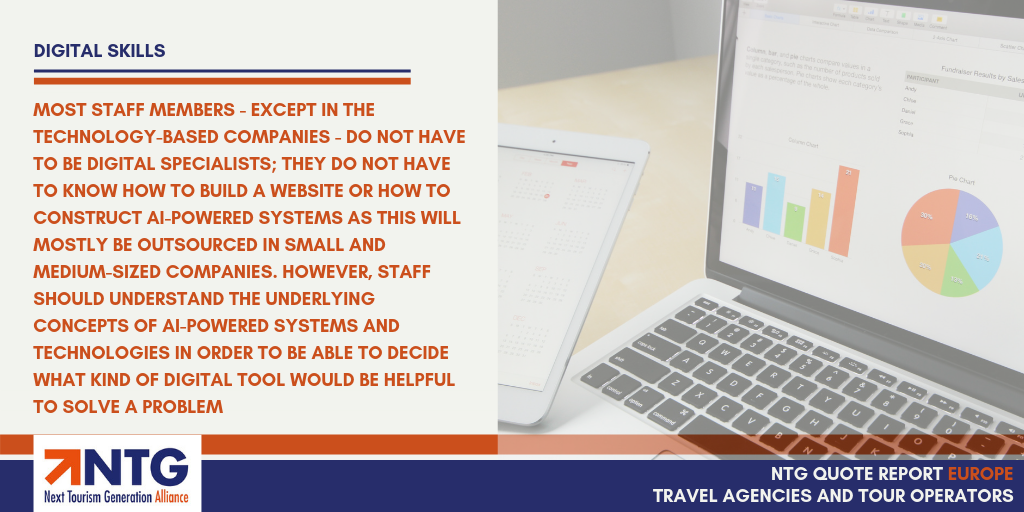World Travel Café – Insights from Dutch Tour Operators and Travel Agencies on Digital Skills
Breda University of Applied Sciences, one of the key partners in the Next Tourism Generation (NTG) Alliance, organized a World Travel Café Session on digital, green and social skills with Dutch tour operators and travel agencies during a Travel Challenge Conference for students in Turkey. The theme discussed during this meeting between educational institutions and tourism businesses is the focus of the NTG project: the digital, green and social skills needed in the future for sustainable tourism development. In other words, what will the future of digital, green and social skills look like within various organizational structures and at different job levels? This blog highlights the key insights from the discussion focusing on digital skills.
How should digital skills development be facilitated?
An important debate is whether the development of digital skills must be facilitated by the employer during working hours or whether upskilling should be undertaken by employees during out of office hours. There are also different views on how these skills should be taught. Can employers expect the development of digital skills to happen on the job with help from colleagues or external tools such as Google Digital Garage? Or is it better that these skills are taught by advanced agencies that can quickly train digital specialities within organizations needed to fulfil job requirements?
It turned out that digital skills require flexibility. In addition, they cannot be developed without purpose and budget. It takes a lot of time to learn and maintain digital skills in a rapidly changing landscape. This requires a clear plan with both financial resources and time investment.
Participants of the World Travel Café also concluded that digital skills are currently given little to no priority in tourism education in The Netherlands. Digital skills must, therefore, be embedded into courses offered by educational institutions and/or upskilling facilitated in partnership with the tourism industry. This is possible, for example, through traineeships in which recent graduates are given the opportunity to develop further their digital skills. In this way, young professionals get prepared to make a real digital impact in tourism businesses, especially in small organizations.
Small and large travel companies: the difference in skills development
There are both opportunities and threats to skills development within small tourism businesses. A smaller department or organization can transform and develop faster in all possible aspects. The pace of growth can be fast. At the same time, a smaller organization has a greater challenge in relation to managing costs and revenue. With limited financial resources and workers, small organizations also need to be able to operate in a sustainable way and create a positive impact by supporting the development of the overall tourism industry, instead of only focusing on the individual organization itself. They must gain and implement the knowledge and important skills of the other sub-sectors in the industry as well.
Large organizations can guarantee skills development in a different way. For example, an employee working on skills together with the manager as a coach, instead of only during and after the assessment cycle. In this way, it is a sustainable and longer-term skills development process.
Cooperation between education and tourism businesses
A joint conclusion from both educational institutions and tourism businesses was that travel companies would be wise to deploy students to their strengths. To achieve this, it is important that students work in an interdisciplinary way, in teams with students from other educational institutes and with commercial clients and/or commissioners of actual projects so that they become acquainted with practicing in real life.
This means more intensive cooperation between educational institutions and tourism businesses, whereby a case is simulated and tourism education offers implementation of actual projects.
The image of tourism education and the digital fear
From the World Travel Café expert group, we learnt that tourism businesses still see tourism education as an important specialization with a strong identity. The wish of the companies would be to see creative design thinking as the basic knowledge of courses within tourism education, from which any translation to a tourism product can be made. Tourism students generally have good soft skills (which pure IT staff, for example, may lack), which makes working in interdisciplinary teams essential.
How should tourism as a sector with many job levels and a multitude of organizational structures be promoted to future tourism students? It starts with changing the mindset on open days of tourism education by giving a specific message: it is important to be creative but also to be digital. There is a fear of learning digital skills among a large number of tourism students, even by many lecturers – “digital fear” – and this is evident in some travel companies too. By developing the digital skills of students together with tourism businesses, further steps can be taken.
Are these experiences and insights shared in other countries? Please, give your opinion!
By Lobke Elbers, industry specialist digitalization and technology in travel, tourism & hospitality. Lobke is working at Breda University of Applied Sciences, one of the key partners of the Next Tourism Generation Alliance and responsible for the communication and the dissemination of the NTG project.
Follow the efforts of the Next Tourism Generation via our website, Facebook, Twitter | #NTGskillsalliance or via LinkedIn
In collaboration with Reiswerk and Travel Challenge.
Photo credits: http://www.jordiwallenburg.nl/





No Comments